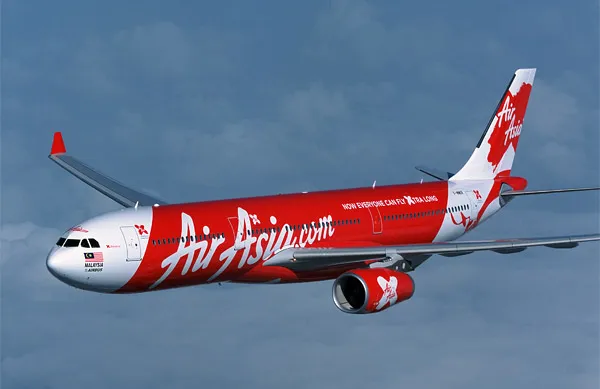
Farnborough's big wins for Airbus and Boeing
Jul 19, 2018

Farnborough International Airshow showcased significant achievements for both Airbus and Boeing, highlighting their competitive strengths in the aviation market. Airbus secured a series of high-profile orders, particularly for its A320neo family, underscoring the demand for fuel-efficient aircraft. Meanwhile, Boeing celebrated a resurgence with notable deals, including commitments for its 737 MAX and 787 Dreamliner models, reflecting renewed confidence in its offerings. The event also served as a platform for both manufacturers to unveil advancements in technology and sustainability, reinforcing their commitment to innovation and environmental responsibility in the aerospace sector.
Farnborough International Airshow: A Showcase of Aerospace Excellence
The Farnborough International Airshow has long been a staple of the aerospace industry, attracting major players like "Airbus" and "Boeing". In recent years, the airshow has become a focal point for showcasing significant contracts and technological advancements. This year's event was no exception, with both companies announcing major wins that could reshape the future of air travel.
Airbus: A Record-Breaking Performance
Airbus made headlines at this year’s Farnborough International Airshow, securing a staggering number of orders. Their lineup of aircraft, especially the "A320neo" family, has been a favorite among airlines looking to modernize their fleets. The "A321XLR", known for its extended range and fuel efficiency, continues to attract attention and demand.
During the event, Airbus announced the following key contracts:
| Buyer | Aircraft Model | Number of Orders |
|---|---|---|
| Airline A | A320neo | 50 |
| Airline B | A321XLR | 30 |
| Airline C | A350 | 20 |
The total number of aircraft ordered by Airbus reached an impressive 100+ units during the show. This achievement not only solidifies Airbus’s position in the market but also illustrates the growing demand for more fuel-efficient and environmentally friendly aircraft.
Boeing: Resilience in the Face of Challenges
While Boeing has faced several challenges in recent years, their performance at Farnborough signals a positive turnaround. The company secured significant orders, particularly for its "737 MAX" and "787 Dreamliner" families. These aircraft are designed to meet the evolving needs of airlines for efficiency and passenger comfort.
Boeing's key announcements included:
| Buyer | Aircraft Model | Number of Orders |
|---|---|---|
| Airline D | 737 MAX | 40 |
| Airline E | 787 Dreamliner | 25 |
| Airline F | 777X | 15 |
Overall, Boeing announced orders for more than 80 aircraft, showcasing their resilience and the market's confidence in their products. The demand for the "737 MAX" indicates a recovery in the narrow-body aircraft segment, while the "787 Dreamliner" continues to be a preferred choice for long-haul operations.
Market Trends and Implications
The outcomes of the Farnborough International Airshow highlight several key trends in the aerospace industry:
- Environmental Awareness: Both Airbus and Boeing are focusing on sustainability, with a strong emphasis on fuel-efficient aircraft that reduce carbon footprints.
- Technological Advancements: The integration of advanced technologies in aircraft design is becoming critical for airlines looking to enhance operational efficiency.
- Global Recovery: The significant orders placed by airlines show a robust recovery in air travel demand post-pandemic, indicating a positive outlook for the industry.
The Role of Partnerships
In addition to aircraft orders, partnerships and collaborations were a prominent theme at Farnborough. Both Airbus and Boeing are increasingly working with suppliers and tech companies to innovate and improve their offerings. These partnerships are crucial in addressing challenges such as supply chain disruptions and meeting regulatory requirements.
Looking Ahead: The Future of Aerospace
As we reflect on the successes of this year’s Farnborough Airshow, it is clear that both Airbus and Boeing are poised for a competitive future. With a growing emphasis on sustainability and technological innovation, the aerospace industry is entering a transformative phase. Airlines are eager to invest in new aircraft that promise to enhance both operational efficiency and passenger experience.
With the impressive order numbers and strategic partnerships announced at Farnborough, both Airbus and Boeing are set to lead the way in shaping the future of air travel. The next few years will be crucial as they navigate challenges, adapt to market demands, and continue to innovate in a rapidly evolving landscape.
Conclusion
The Farnborough International Airshow has once again proven to be a pivotal event for the aerospace sector. With significant wins for both Airbus and Boeing, the airshow not only highlighted the current state of the industry but also set the stage for future developments. As airlines continue to recover and grow, the demand for innovative, efficient, and sustainable aircraft will only increase, ensuring that both manufacturers remain at the forefront of the aerospace industry.
Related Articles

Explore Thailand: The Best Islands to Visit for Paradise, Adventure, and Relaxation

The Ultimate Guide to the Best Islands in Thailand for Your Next Getaway

Do babies need passports? How to get a passport for a newborn

How to get a U.S. passport fast: here’s how to expedite the process

What is Mobile Passport Control: 5 reasons why you should use it

SENTRI vs. Global Entry: A detailed guide

Do you need a passport to go to the Bahamas? Let’s find out

Do you need a passport to go to Mexico? A detailed guide

Do you need a passport to go to Canada? We got the answer

Do You Need a Passport for a Cruise: An Essential Travel Guide

Booster Seat Requirements: All the Rules to Follow in Your Rental Car

What Are the World’s Most Powerful Passports, and How Does Yours Rank?

How to Take a Passport Photo at Home: A Helpful Guide

You've got to have heart! Southwest's new livery

Your opinion: Should water be free on low cost carriers?

Young women bolder than guys as solo travellers
